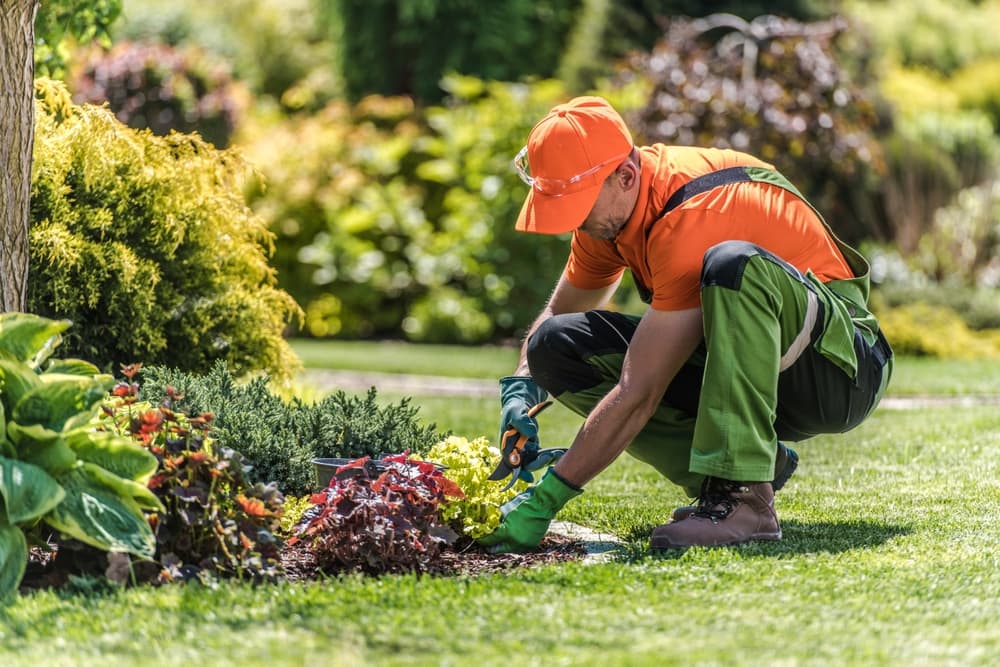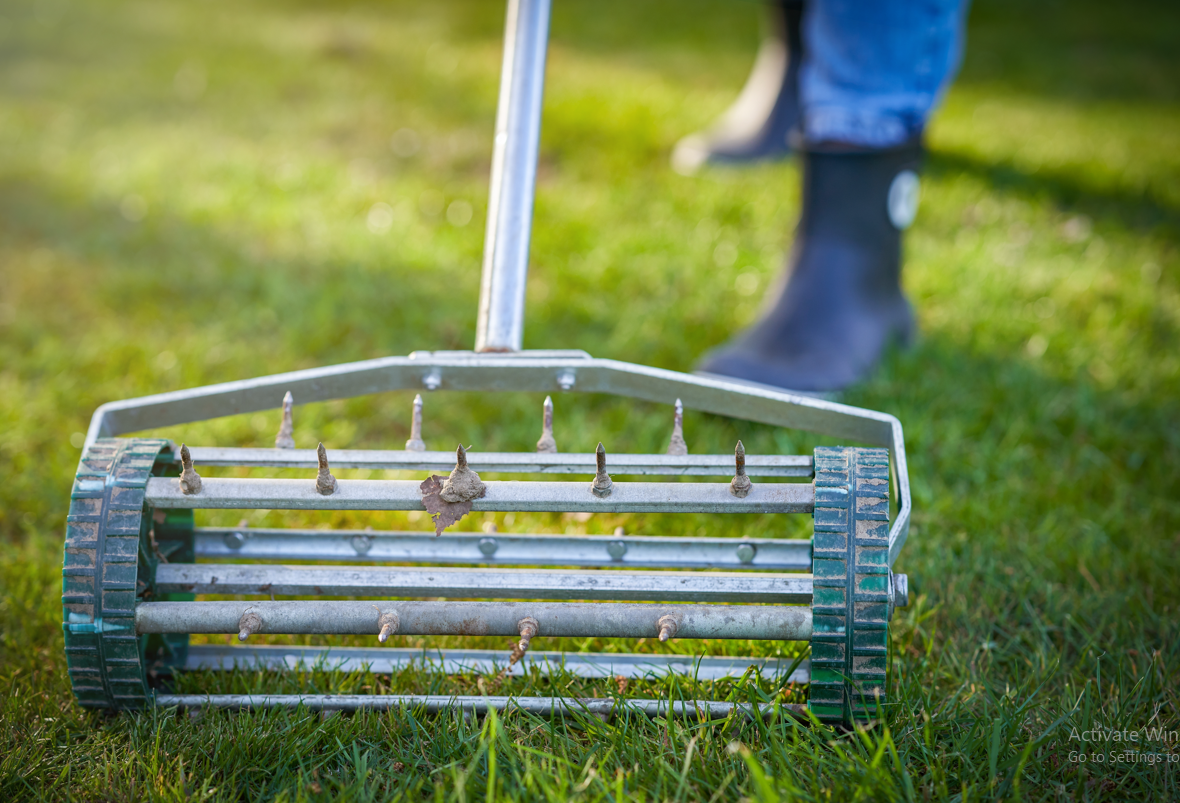Creating a beautiful landscape in Fairfield County can be a rewarding experience. With the right tips and tricks, any homeowner can transform their yard into a stunning outdoor oasis. Here, we reveal some of the best-kept landscaping secrets tailored specifically for the unique conditions of Fairfield County.

Understanding Fairfield County’s Unique Landscaping Needs
Climate and Soil Conditions
Fairfield County’s climate offers a diverse range of conditions, from hot, humid summers to cold, snowy winters. This variability means selecting plants that can thrive throughout the year is crucial. Native plants, like the Eastern Redbud or the Mountain Laurel, are well-adapted to the local climate and soil, providing beauty and resilience.
Benefits of Native Plants
Using native plants not only supports local wildlife but also reduces maintenance. These plants are accustomed to the area’s rainfall patterns and soil conditions, meaning they require less water and fewer fertilizers. It’s a win-win for both your garden and the environment.
Seasonal Landscaping Tips for Fairfield County
Spring
Soil Preparation and Fertilization
Spring is the perfect time to prepare the soil. Testing the soil pH and adding necessary amendments can set the stage for a healthy growing season. Organic fertilizers are a great choice, as they improve soil structure and fertility.
Planting Early-Blooming Flowers and Shrubs
Consider planting early bloomers like daffodils and azaleas. These plants add vibrant color to the garden after a long winter and are hardy enough to handle the occasional late frost.
Mulching Techniques
Mulching helps retain moisture and suppress weeds. A 2-3 inch layer of organic mulch around plants conserves water and provides nutrients as it decomposes.
Summer
Efficient Watering Strategies
During the hot summer months, watering in the early morning minimizes evaporation and ensures plants get the hydration they need. Drip irrigation systems are highly efficient, delivering water directly to the roots.
Lawn Care Tips
Mowing the lawn at a higher setting, around 3 inches, helps shade the soil and retain moisture. This practice also promotes deeper root growth, making the lawn more drought-resistant.
Incorporating Shade Plants and Structures
Adding shade-tolerant plants like hostas and ferns can create cool, inviting spaces. Pergolas or shade sails provide relief from the sun for both plants and people.

Fall
Preparing the Garden for Winter
Fall is the time to clean up the garden and prepare it for the winter months. Removing dead plants and debris prevents pests and diseases from overwintering.
Planting Perennials and Bulbs
Planting spring-blooming bulbs and hardy perennials in the fall ensures a burst of color when the warmer weather returns. Tulips and crocuses are excellent choices.
Leaf Management and Composting
Instead of bagging leaves, consider composting them. They break down into valuable organic matter, enriching the soil for the next growing season.
Winter
Protecting Plants from Frost and Snow
Mulching around the base of plants and using burlap wraps can protect against harsh winter weather. For delicate plants, consider temporary covers during extreme cold snaps.
Off-Season Garden Planning and Design
Winter is a great time to plan for the next season. Sketching out garden designs and selecting new plants allows for a smooth transition into spring.
Pruning and Maintenance Tasks
Winter is ideal for pruning dormant trees and shrubs. This encourages healthy growth and shapes the plants for the coming year.
Design Secrets for a Stunning Fairfield County Landscape
Creating Focal Points with Hardscaping
Hardscaping elements like stone pathways, retaining walls, and patios provide structure and focal points in the garden. They can transform a plain yard into a well-defined, attractive space.
Designing Functional Outdoor Living Spaces
Outdoor living spaces, such as patios and decks, extend the home into the garden. Incorporating comfortable seating, outdoor kitchens, and fire pits makes these areas perfect for entertaining.
Using Lighting to Enhance Landscape Features
Strategic lighting highlights the garden’s best features and adds a magical touch at night. Path lights, spotlights, and string lights create ambiance and improve safety.
Incorporating Water Features
Water features like ponds, fountains, and waterfalls bring tranquility and beauty to the landscape. They also attract wildlife, adding another dimension to the garden.

Sustainable Landscaping Practices
Xeriscaping and Drought-Resistant Plants
Xeriscaping involves designing landscapes to reduce or eliminate the need for irrigation. Using drought-resistant plants like lavender and sedum ensures the garden remains vibrant even during dry spells.
Composting and Organic Gardening
Composting kitchen scraps and garden waste creates rich, organic soil. Organic gardening practices, such as using natural pest controls, keep the garden healthy and sustainable.
Rainwater Harvesting and Efficient Irrigation
Installing rain barrels to collect runoff from roofs provides a free water source for the garden. Efficient irrigation systems, like drip lines, reduce water waste and target plant roots directly.
Reducing Chemical Use
Minimizing the use of chemical fertilizers and pesticides creates a healthier environment. Natural alternatives and integrated pest management strategies keep the garden thriving without harmful side effects.
Maximizing Curb Appeal
Well-Maintained Front Yard
A well-maintained front yard makes a great first impression. Regular mowing, edging, and weeding keep the lawn neat and inviting.
Pathway and Driveway Design Tips
Attractive pathways and driveways guide visitors through the landscape. Using materials like brick, stone, or gravel adds texture and visual interest.
Foundation Plantings
Choosing the right plants for foundation plantings enhances the home’s architecture. Evergreen shrubs, ornamental grasses, and flowering perennials create a balanced and attractive look.
Seasonal Decorations
Adding seasonal decorations, such as holiday lights or autumn wreaths, gives the home a festive appearance. Changing these accents throughout the year keeps the landscape fresh and engaging.
Dealing with Common Landscaping Challenges in Fairfield County
Addressing Drainage Issues
Proper drainage is essential to prevent waterlogged soil and plant root rot. Installing French drains, dry wells, or swales can effectively manage excess water.
Managing Pests and Diseases Organically
Organic pest control methods, like introducing beneficial insects and using neem oil, keep pests at bay without harmful chemicals. Regular monitoring and early intervention are key to managing diseases.
Dealing with Deer and Wildlife
Deer-resistant plants, such as boxwood and yarrow, deter hungry wildlife. Installing fencing or using repellents can also protect vulnerable plants.
Strategies for Sloped or Uneven Terrains
Terracing and retaining walls can turn a sloped yard into a usable space. These structures prevent soil erosion and create level planting areas.

DIY vs. Professional Landscaping Services
Pros and Cons of DIY Landscaping
DIY landscaping can be a fun and rewarding project. However, it often requires significant time, effort, and knowledge. Mistakes can be costly and time-consuming to fix.
When to Hire a Professional
Hiring a professional landscape contractor ensures the job is done right the first time. Professionals have the expertise, tools, and resources to tackle complex projects efficiently.
Cost Considerations and Budgeting
While professional services come with a cost, they can save money in the long run by avoiding common DIY pitfalls. A clear budget and plan can help homeowners achieve their landscaping goals without overspending.
Choosing the Best Landscape Service Provider
Selecting a reputable landscape service provider involves researching credentials, reading reviews, and asking for referrals. It’s important to find a contractor who understands the homeowner’s vision and needs.
Contact Us for Reliable Landscaping Services Today!
Transforming your Fairfield County landscape into a stunning, sustainable space is within reach with these exclusive tips. Whether you’re a DIY enthusiast or prefer professional assistance, implementing these strategies will give your garden the edge it deserves. For personalized landscape services, contact Richard Jones Landscaping LLC at 203-588-0038. Our team is ready to help you create the garden of your dreams.
